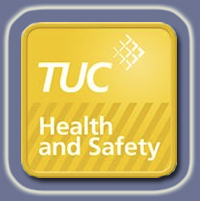The Government have set out their policy on health and safety on the DWP website. It is clear, concise and simple and is also absolute drivel, says the TUC.
Commenting on the use of Government departmental websites as a propaganda tool, the TUC's Facebook page had this to say:
One of the four points it makes is “We believe that good health and safety is important, but the burden of excessive health and safety rules and regulations on business has become too great and a damaging compensation culture is stifling innovation and growth.”
 In a nutshell they are saying we have too much regulation and compensation and as a result business is suffering. They give no evidence for this and we are expected to just take it as fact.
In a nutshell they are saying we have too much regulation and compensation and as a result business is suffering. They give no evidence for this and we are expected to just take it as fact.
This Government seems to see Government websites as the property of the political parties rather than of the state. They are increasingly being used as tools of propaganda rather than being there to give information.
But while you would expect a certain ideological spin on anything this government does, this goes further than that. The claim that there is a burden of excessive rules and a damaging compensation culture is, to put it simply, a complete lie.
It is easy to show that the opposite is true and that the European countries that have the strongest levels of protection also have the highest levels of growth, but they are not really interested in the evidence as they already know all this.
In fact the Governments own advisors have told them that both parts of the government’s statement are wrong.
Professor Ragnar Löfstedt, in his report for the Government last year said,
“the overall cost of workplace accidents and ill health has been estimated to be up to a staggering £20 billion a year”.
He added:
“whilst the costs associated with compliance can be significant, current health and safety regulation plays a significantly beneficial role. Indeed, the vast majority of employers and employer organisations acknowledged the importance of health and safety regulation in their responses to the call for evidence and felt that, in general, the regulations were broadly fit for purpose. During the course of my review, I have neither seen nor heard any evidence to suggest that there is a case for radically altering or stripping back current health and safety regulation.”
 He was just as dismissive of the compensation culture stating:
He was just as dismissive of the compensation culture stating:
“The ‘compensation culture’ (or the perception of it) in the UK has been the subject of several reviews over the last few years,, but no evidence has been presented for its existence. For example, the House of Lords Select Committee on Economic Affairs found no clear evidence that a compensation culture has developed, and concluded that the notion appears to be based more on widely reported anecdotes than extensive analysis.”
Two years previously, Lord Young, who was asked to report to the Prime Minister on the issue, had stated:
“The problem of the compensation culture prevalent in society today is, however, one of perception rather than reality.”
The simple truth is that, despite what the press and politicians may claim, workplace claims have halved in the last ten years. Government figures show that there has been a fall from 219,183 in 2000/01 to 91,370 in 2012/13, a fall of over 60%. A report by Hazards magazine showed that 6 out of every 7 workers who are injured or made ill through work get no compensation, usually because they do not make a claim.
This fall in compensation claims is certainly not a result of the workplace being safer and could make them even less safe as compensation claims force insurers to demand that employers clear up their act and can act as a deterrent on employers.
So if there is a problem of perception over the “burden” of health and safety, and compensation, should the Government not be challenging the perception and trying to show that, as all the studies show, health and safety helps business? That way they would not only get rid of the misconceptions and myths, but also actually do some good by encouraging employers to protect their workers.
Source: TUC